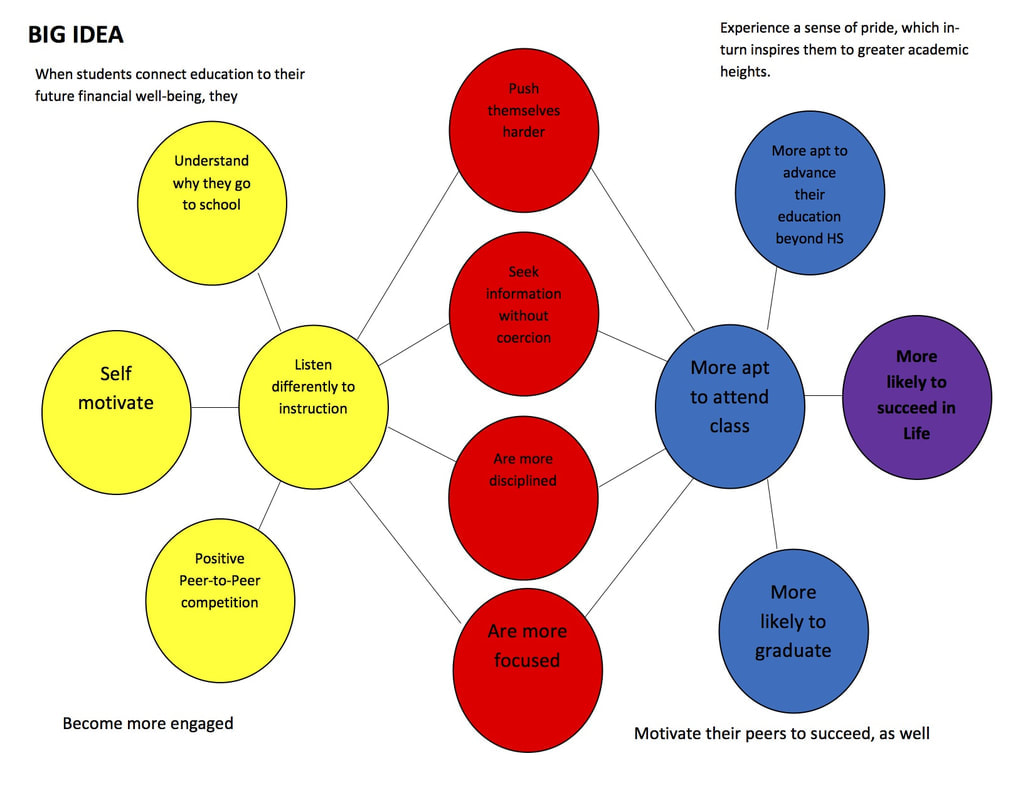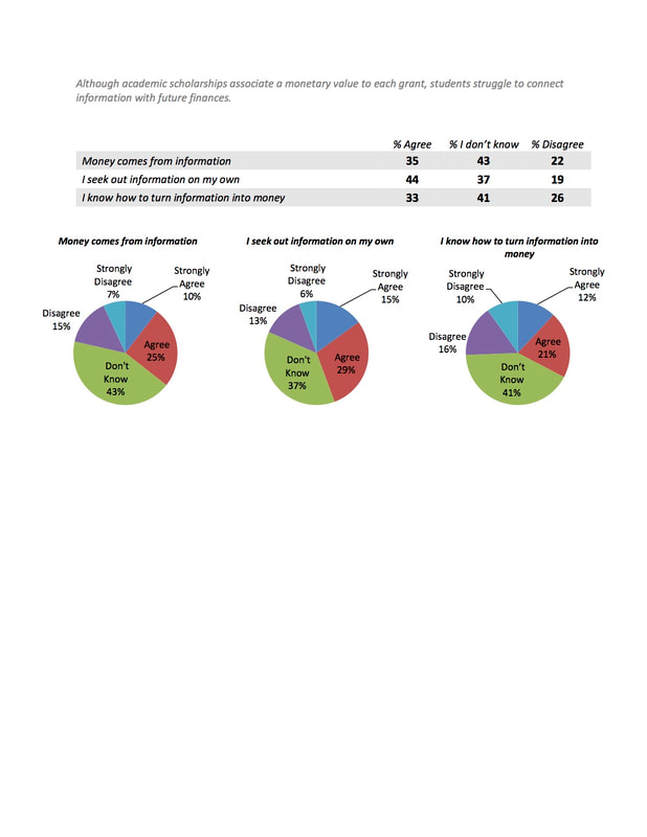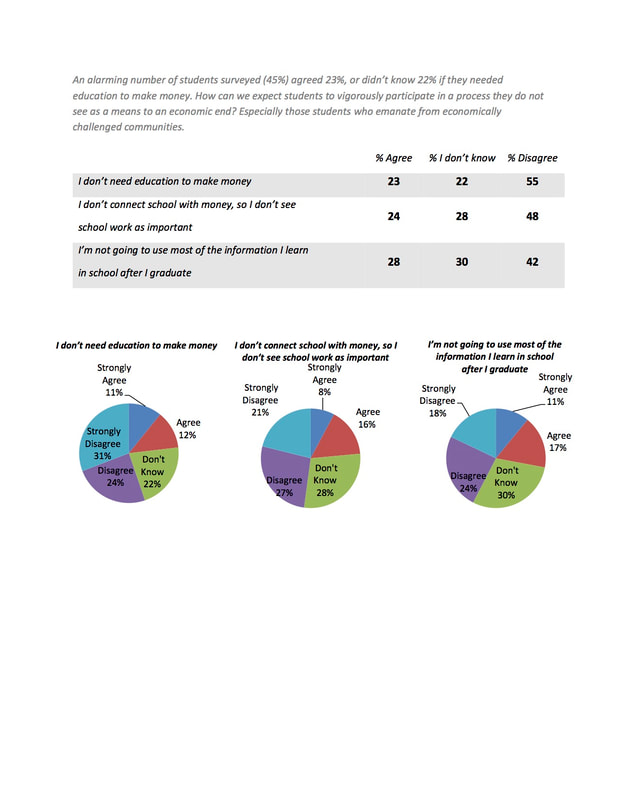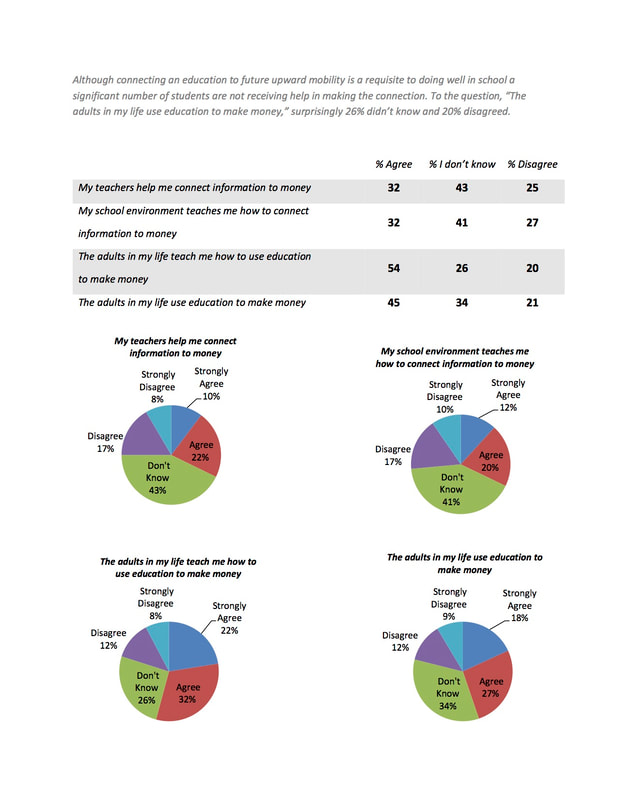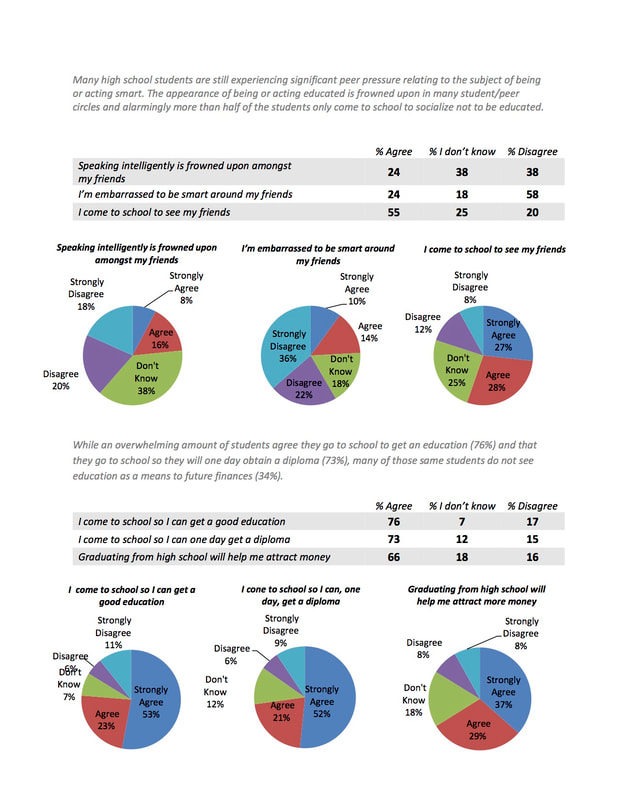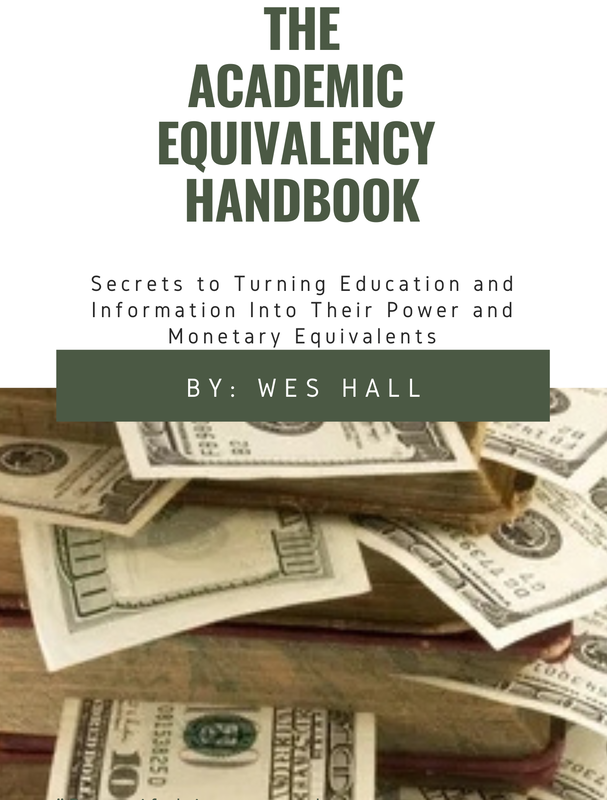Click below to download curriculum Synopsis
| synopsis_making_dollars_and_sense_of_education_copyright.pdf | |
| File Size: | 564 kb |
| File Type: | |
Do students who grow up in economically challenged communities view education as a means to financial independence?
Since 2007, the Institute for Student Empowerment has conducted an extensive and enduring independent study focused on students from economically disadvantaged communities. This study aimed to gauge their attitudes and behaviors regarding education's impact on their future financial and overall well-being. After years of classroom engagement, we developed a survey instrument to collect empirical data on this subject. Below, we present the survey results, distilled from our extensive research.
Theory of Change Framework:
Challenge: A substantial cohort of students originating from economically disadvantaged backgrounds grapple with the formidable challenge of bridging the gap between a high-quality education and their prospective financial well-being. Regrettably, the failure to establish this pivotal connection often precipitates a host of adverse consequences, including disengagement, absenteeism, tardiness, academic apathy, and, ultimately, dropout.
Solution: To address this challenge, educational districts must proactively identify and support students grappling with this disconnect. The solution lies in the provision of specialized training and curriculum explicitly designed to facilitate the bridging of this cognitive chasm.
Results: The moment we equip students with the cognitive tools—specifically, critical thinking and problem-solving skills—necessary to forge the link between education and future financial independence, we activate a primal and instinctive motivator inherent in children hailing from impoverished communities: the pursuit of survival. Upon close examination, one can discern that a considerable number of these students often articulate aspirations of achieving financial security through alternative avenues, such as sports, music, or street pursuits, while failing to perceive education as a viable means to this end. By empowering them to qualify and quantify the value of education, we catalyze a transformative paradigm shift. This shift propels students from mere perfunctory participation to a state of dynamic and engaged involvement in their educational journey.
Challenge: A substantial cohort of students originating from economically disadvantaged backgrounds grapple with the formidable challenge of bridging the gap between a high-quality education and their prospective financial well-being. Regrettably, the failure to establish this pivotal connection often precipitates a host of adverse consequences, including disengagement, absenteeism, tardiness, academic apathy, and, ultimately, dropout.
Solution: To address this challenge, educational districts must proactively identify and support students grappling with this disconnect. The solution lies in the provision of specialized training and curriculum explicitly designed to facilitate the bridging of this cognitive chasm.
Results: The moment we equip students with the cognitive tools—specifically, critical thinking and problem-solving skills—necessary to forge the link between education and future financial independence, we activate a primal and instinctive motivator inherent in children hailing from impoverished communities: the pursuit of survival. Upon close examination, one can discern that a considerable number of these students often articulate aspirations of achieving financial security through alternative avenues, such as sports, music, or street pursuits, while failing to perceive education as a viable means to this end. By empowering them to qualify and quantify the value of education, we catalyze a transformative paradigm shift. This shift propels students from mere perfunctory participation to a state of dynamic and engaged involvement in their educational journey.
